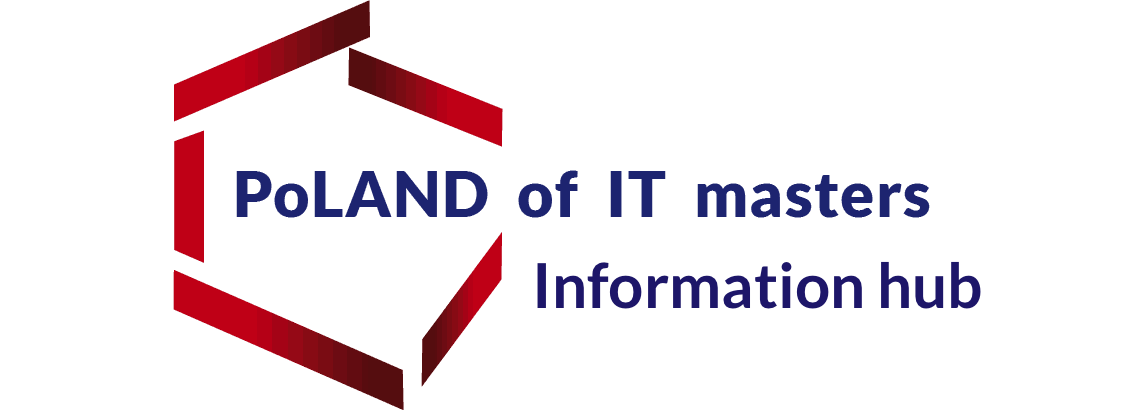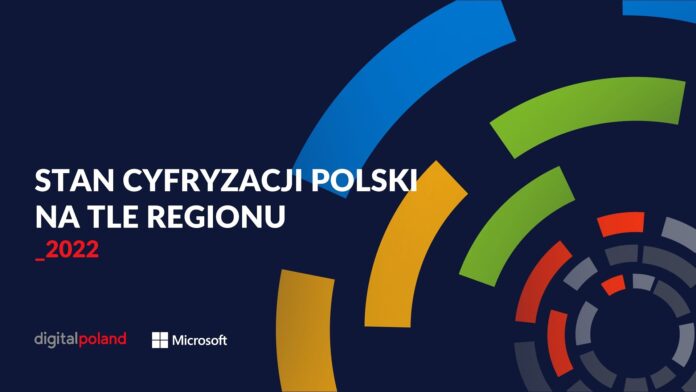In digitization of Poland we performs much worse regarding the level of digital skills among the general public.
The Digital Poland Foundation and Microsoft have prepared a report showing Poland’s digitization level. The report is based on the Digital Futures Index. It provides data on the current status of digitization of the country. And indicates the areas where the greatest success has been achieved. But also where there is more to be done to accelerate the digital transformation process.
Figures
55 indicators were analyzed to determine a given country’s digitization. They are divided into five areas:
- digitization of business,
- public sector,
- digital infrastructure,
- digital economy,
- human capital.
The total level of digital development in Poland is 98 points. It means 2% below the average for the CEE countries. 100 is the number of points defined as the average for the surveyed countries from CEE.
Poland ranks high in the ranking when it comes to the level of digitization of public services. It is due to society’s high level of interaction with the state using digital technologies (over 45% above average). And the high level of digitization of the education sector (18% above average). We do much worse in the human capital category. It is due to the low level of activity of women in the technology sector (26% below the average). And a lower percentage of graduates studying ICT (24% below the average) or science (as much as 38% below the average). Poland also performs poorly in the digital infrastructure field (13% below the average). It is due to, among other things, no frequency auctions for 5G networks.
Microsoft’s opinion
“The analysis shows that Poland has the potential to accelerate its pace of digital transformation. Thanks to the spirit of entrepreneurship and open society, our country can become a leader in the CEE region. And an incubator of great ventures with aspirations for global growth. By supporting the development of the Polish Digital Valley, we have committed ourselves to strengthen the position of Poland, its citizens, and companies, which should make it a global player,” says Dominika Bettman, Microsoft’s General Director in Poland.
Comparison to CEE
Below are the index results for Poland by category, compared to the CEE average (100 is the average).
Business digitization
In this category, Poland received 99 points, which is 1% below the average. Our country is much better in terms of the percentage of companies employing specialists in the field of ICT, achieving a result 35% higher than the average for CEE. However, it lags slightly behind in the percentage of enterprises that buy and use cloud computing (9% below the CEE average). Because it is strongly related to higher levels of innovation and productivity.
Digitization of the public sector
In this category, Poland obtained 114 points, but 145 for the interaction of society with the state via digital technologies. In other words, digital public services are top-rated where they exist. It suggests a much greater overall demand for digital services and represents a critical digital development opportunity for the country. The main area for further development is increasing the percentage of schools with online learning platforms, so the country scored 79.
Digital infrastructure
In this category, Poland obtained 101 points. Poland has achieved better results in this respect, despite a weaker position regarding fixed-line communications or bandwidth available for mobile networks. The scoring was also lowered by the scale of investments in ICT, cloud, AI, and IoT in Poland. As much as 10% below the average for the surveyed countries in the region.
Digital economy
In this category, Poland fared 3% below the average of the CEE. Poland exceeds the CEE average by 11% only in terms of ICT exports. However, the size of the digital economy cannot be assessed. Poland is above the average for the region in terms of e-commerce (108) and consumer electronics (111). However, it is below average regarding the share of ICT professionals in total employment (93) and the contribution of the ICT sector to GDP (76).
Human capital
In this category, our country scored the lowest – 86. Poland achieves a result 14% lower than the average for CEE in terms of the level of digital skills among the general public. Skills are most strongly correlated with higher wages, higher productivity, and sustainability efforts. So further investment in this area will have significant benefits. A key priority is to increase investment in nurturing the next generation of talented engineers and addressing the current gender imbalance.
Digitization versus economic development
The report shows the relationship between the degree of digitization of the country and economic and social development by collecting and correlating some indicators. The analyses show that more digitally advanced countries perform better in economic and social indicators. In other words, they are greener, wealthier, more innovative, and more competitive. So when discussing digital transformation, the question no longer is “if” but “how” and “how fast.”
“At the Foundation, we believe that digitization and new technologies can help solve our country’s serious problems. If, for example, we had a network of Internet of Things sensors measuring water quality, we would quickly and easily find out about the poisoning of the Odra River. Thanks to high-speed 5G network connectivity, we could better use our natural resources and control power networks, making our air cleaner. Therefore, decision-makers should intensify activities for digitization in Poland,” says Piotr Mieczkowski, managing director at the Digital Poland foundation.
Metodology
The report is based on the Digital Futures Index. It shows digital development using 55 indicators from trusted public data sources. Such as the EC, European Investment Bank, Eurofound, UNESCO, World Bank, OECD, WTO , and the UN. It includes data for the countries of CEE and other countries in the region. It means: Estonia, the Czech Republic, Croatia, Greece, Romania, Russia, Poland, Hungary, Malta, Slovenia, and Serbia. And selected countries of Western Europe. All of them, according to experts from various reports, are considered for leaders in the field of digitization.
The report debuted at the Economic Forum in Karpacz. It can be downloaded from the Digital Poland Foundation website, but only in Polish. The Foundation is the institutional partner of the event.
Read more about strong IT skills in Poland here.



